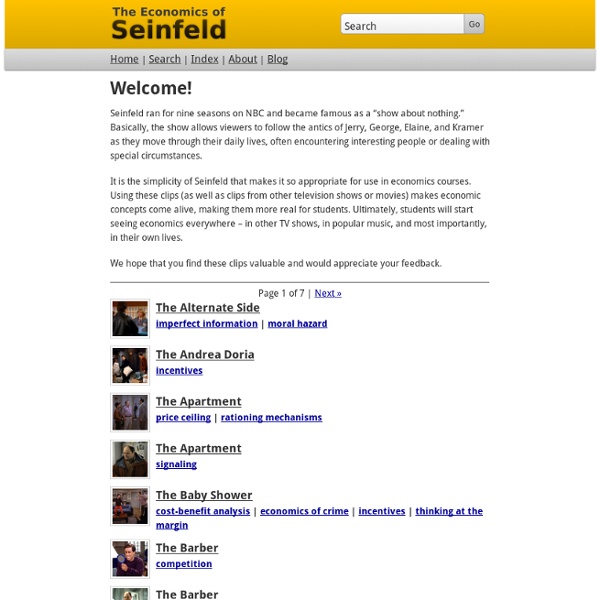



Classical Economics vs. The Exploitation Theory - George Reisman For more than a century, one of the most popular economic doctrines in the world has been the exploitation theory. According to this theory, capitalism is a system of virtual slavery, serving the narrow interests of a comparative handful of businessmen and capitalists, who, driven by insatiable greed and power lust, exist as parasites upon the labor of the masses. This view of capitalism has not been the least bit shaken by the steady rise in the average standard of living that has taken place in the capitalist countries since the beginning of the Industrial Revolution. By the same token, they tremble at the thought of unions not existing, of a society without minimum wage laws, maximum hours legislation, and child labor laws—at the thought of a society in which no legal obstacles stood in the way of employers pursuing their self-interest. The Exploitation Theory and the Overthrow of Classical Economics The Conceptual Framework of the Exploitation Theory Smith and Marx are wrong.
Ten Recurring Economic Fallacies, 1774–2004 - H.A. Scott Trask As an American historian who knows something of economic law, having learned from the Austrians, I became intrigued with how the United States had remained prosperous, its economy still so dynamic and productive, given the serious and recurring economic fallacies to which our top leaders (political, corporate, academic) have subscribed and from which they cannot seem to free themselves—and alas, keep passing down to the younger generation. Let’s consider ten. Myth #1: The Broken Window One of the most persistent is that of the broken window—one breaks and this is celebrated as a boon to the economy: the window manufacturer gets an order; the hardware store sells a window; a carpenter is hired to install it; money circulates; jobs are created; the GDP goes up. The fallacy lies in a failure to grasp what has been foregone by repair and reconstruction—the labor and capital expended, having been lost to new production. Myth #2: The Beneficence of War In 1865, the financial question recurred.
Economics Revision Notes for AS, A2 & IB Economics AS, A2 & IB Economics Revision Notes This is a new, comprehensive collection of free revision notes to support core topics on your AS, A2 or International Baccaleaurate Economics courses. Click on the relevant tab to find suitable notes. Click here for a comprehensive range of economics revision presentations Digital Magazines Business Cafe econoMAX First Past the Post Teacher Services Subject Newsletters Inset Courses Student Workshops Blogs Economics Business Studies Politics History IB Diploma Sociology Law Religious Studies Revision Presentations Business Strategy Accounting & Finance Economics External Environment Marketing Politics Revision Notes Accounting & Finance Economics (AS/A2) Economics (GCSE) External Environment Business Studies (GCSE) Marketing People / Organisations Politics Production & Ops Religious Studies (AS/A2) Sociology (GCSE) Strategy Quizzes The Biz Quiz (Business) Accounting & Finance Economics (AS/A2) Marketing People & Organisations Politics Production & Operations Other Resources Applying to University
Mind the Gap May 2004 When people care enough about something to do it well, those who do it best tend to be far better than everyone else. There's a huge gap between Leonardo and second-rate contemporaries like Borgognone. You see the same gap between Raymond Chandler and the average writer of detective novels. A top-ranked professional chess player could play ten thousand games against an ordinary club player without losing once. Like chess or painting or writing novels, making money is a very specialized skill. Why? I think there are three reasons we treat making money as different: the misleading model of wealth we learn as children; the disreputable way in which, till recently, most fortunes were accumulated; and the worry that great variations in income are somehow bad for society. The Daddy Model of Wealth When I was five I thought electricity was created by electric sockets. Because of the circumstances in which they encounter it, children tend to misunderstand wealth. Stealing It Notes
15 Fascinating TED Talks for Econ Geeks If you dream of a career in accounting, economics or finance, there’s a pretty good chance you love learning more about the global economy, monetary decision-making and other fiscal topics. Through these talks, you’ll get to hear some of the world’s foremost experts on behavior, economics, and politics discuss a wide range of issues, from inequality to consumerism– often with an interesting and unique take on the subject matter that’s perfect for stimulating your inner (and not-so-inner) geek. Loretta Napoleoni: The intricate economics of terrorism: You might be surprised at the economic and political issues that go on behind terrorist organizations.
The Big Mac Index - Applying Simple Economic Common Sense Simple ”quick and dirty” economic modeling can give powerful insight The Economist’s Big Mac Index has traditionally been thought of as an interesting yet dubious proxy for currency valuations and purchasing power. Mcdonald’s has a vast array of branches worldwide. The most beautiful economic models are very simple yet generate very interesting insights. The economic sense behind the Big Mac Index – Purchasing Power Parity Purchasing power parity, also known as PPP is a broadly used economic concept. The Big Mac is an ideal example for a sold good which should be priced the same in the many different countries it is sold in. Purchasing power parity is most commonly used in comparing living standards in different countries. The following map, by Wikipedia, illustrates the purchasing power parity of the gross domestic product for the countries of the world (2003). Source: WikipediaWhich currencies are overvalued and which are undervalued according to the Big Mac Index?